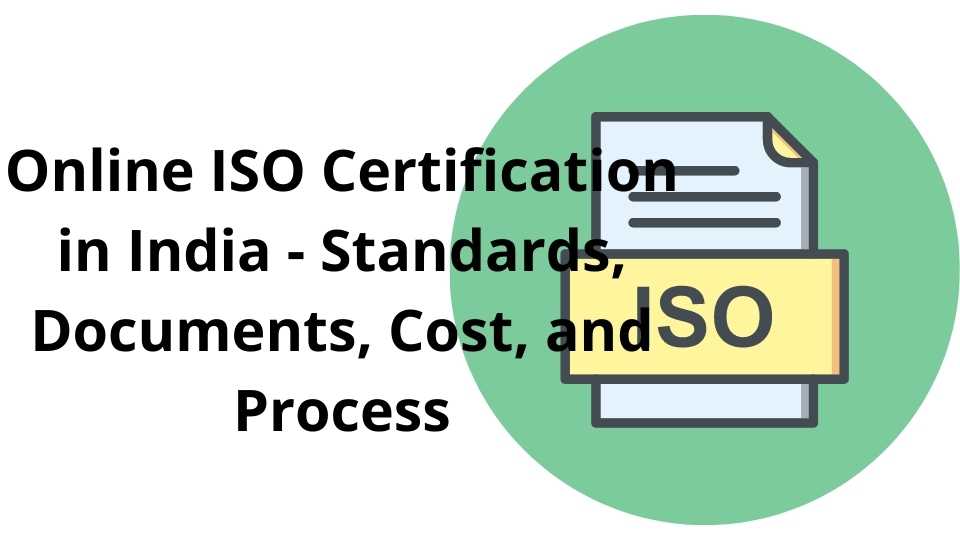Most firms today, from start-ups to small businesses, medium-sized enterprises to huge corporations, are ISO 9001 certified. Indeed, we are all familiar with the acronym ISO, which stands for International Organization for Standardization. But what exactly does this mean? It denotes that a set standard of operation has been developed for the company's products and services. The procedure is held to a high degree of quality, safety, and efficiency.
As an example, consider a soap making company -
- The quality standard established will ensure that the appropriate amount of high-quality raw materials is used. The size of the bar, as well as its appearance, texture, and fragrance, are all consistent.
- The whole manufacturing process, as well as the factory, have safety requirements in place. As a result, proper precautions are taken to avoid any accidents or damages.
- The organization is concerned with productivity. The maximum production in an hour is 100 soap bars — this becomes the criterion of efficiency. As a result, productivity has increased.
Why should ISO standards be followed?
- The ISO is recognized as international certification by authorities and government officials. Furthermore, this lends your organization credibility in other countries.
- ISO certification increases the business's dependability, making it easier to promote products or services.
- Government contracts are mostly awarded to organizations that have obtained ISO certification.
- Accreditation improves operational efficiency across departments and organizations.
- There is no waste of raw materials or working hours.
- Ensured product and service quality
- All of this results in client pleasure, and the organization enjoys goodwill and a high reputation in the market.
What are the conditions for ISO certification in India?
First and foremost, you should select the ISO certification standard that is appropriate for your firm.
Please keep in mind that ISO does not give certificates to applicants. External authorities are in charge of awarding ISO certificates to applicants. It is critical that you conduct your study and select a reliable and recognized certification body from which to earn your certification.
Who is responsible for issuing this certification?
- India's certification procedure
- Sign a certification contract with the registrar. This contract establishes both parties' responsibilities and commitments.
- The company's documents are audited by an ISO-accredited auditor. He also goes over the company's policies and procedures.
- An auditor establishes standards to ensure optimal corporate efficiency and production.
- The auditor conducts an internal audit to see whether the required criteria have been met. However, after the audit is completed, a satisfactory and compliant report is sent to the registrar.
- The audit report is used to issue ISO certification.
- A periodic surveillance audit is performed to confirm that the ISO standards are being followed.
Why should ISO standards be followed?
- The ISO is recognized as international certification by authorities and government officials. Furthermore, this lends your organization credibility in other countries.
- ISO certification increases the business's dependability, making it easier to promote products or services.
- Government contracts are mostly awarded to organizations that have obtained ISO certification.
- Accreditation improves operational efficiency across departments and organizations.
- There is no waste of raw materials or working hours.
- Ensured product and service quality
- All of this results in client pleasure, and the organization enjoys goodwill and a high reputation in the market.
What are the conditions for ISO certification in India?
Select the appropriate ISO Certification type.
First and foremost, you should select the ISO certification standard that is appropriate for your firm.
Select a reputable ISO Certification Body.
Please keep in mind that ISO does not give certificates to applicants. External authorities are in charge of awarding ISO certificates to applicants. It is critical that you conduct your study and select a reliable and recognized certification body from which to earn your certification.
Please keep the following in mind:
- Examine the track histories of various ISO Certification agencies.
- Check to see if they adhere to the CASCO criteria. The ISO established this group to manage conformity assessment concerns.
- Check to see if they match the ISO Accreditation agencies' requirements.
India's certification procedure
- Sign a certification contract with the registrar. This contract establishes both parties' responsibilities and commitments.
- The company's documents are audited by an ISO-accredited auditor. He also goes over the company's policies and procedures.
- An auditor establishes standards to ensure optimal corporate efficiency and production.
- The auditor conducts an internal audit to see whether the required criteria have been met. However, after the audit is completed, a satisfactory and compliant report is sent to the registrar.
- The audit report is used to issue ISO certification.
- A periodic surveillance audit is performed to confirm that the ISO standards are being followed.
India's certification procedure
Sign a certification contract with the registrar. This contract establishes both parties' responsibilities and commitments.
The company's documents are audited by an ISO-accredited auditor. He also goes over the company's policies and procedures.
An auditor establishes standards to ensure optimal corporate efficiency and production.
The auditor conducts an internal audit to see whether the required criteria have been met. However, after the audit is completed, a satisfactory and compliant report is sent to the registrar.
The audit report is used to issue ISO certification.
A periodic surveillance audit is performed to confirm that the ISO standards are being followed.???????





